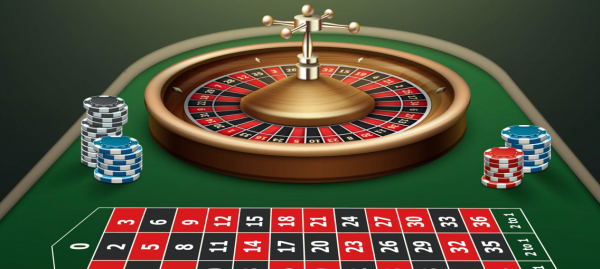Roulette: How to Avoid the Gambler's Fallacy
Roulette is a game of luck, but many players believe they can predict the future and play accordingly. That's called "the gambler's fallacy," and ignoring it can lead to you suffering from huge losses.
But before I tell you why, let’s take a look at what the Gambler’s Fallacy is:
The Gambler's Fallacy
The Gambler's Fallacy is the belief that past events influence future events. It is also known as the Monte Carlo fallacy, the fallacy of the maturity of chances, and the belief that previous outcomes affect future outcomes.
While it may seem difficult to understand how a simple mistake could lead to these significant results, it happens all the time. The most common way people fall prey to this fallacy is by believing that if something happened once before, then it will happen again in exactly the same way.
For example: if you flip a coin and get heads four times in a row, you might think that because it has been tails only twice up until now. And assuming nothing changed, there’s no way another head can possibly come up next time around!
This assumption is clearly false, because if we were truly dealing with randomness then every single flip should have equal odds of coming up either heads or tails. Regardless of what happened previously (even when accounting for biases).
So, does the gambler’s fallacy mean that you should give up on games of chance like roulette? Of course not!
And here’s how you can go about doing so:
1. Don't Bet on Streaks
Streak bets are a big part of roulette. If you're betting on red or black, or even just one or the other, and you win three times in a row, some gamblers will assume that the trend will continue. It's easy to fall into this trap: when something works for us most of the time, it's natural to assume that it will work again in future situations.
But streaks come from chance alone — the wheel is just not biased toward one particular number or color over another at any point in time. The only way streaks could actually happen would be if there were a flaw somewhere within your brain which causes it to interpret patterns incorrectly when presented with them. So, if you feel like you’re on a hot streak while playing real money roulette, take a deep breath and change up your bets. Because you never know if the next spin is the end.
2. Avoid the Martingale Strategy
The Martingale Strategy is a dangerous approach which works by doubling your bet each time you lose. The idea is that eventually, you will win and then make up for all the losses with one huge win.
This doesn't work because it's based on the gambler's fallacy — the belief that if something happens more frequently than normal then it will happen less frequently in the future. And trying to make it big with this strategy will leave you down on your luck with not a penny to show for it.
What you want to do instead is to take advantage of the odds. This means doing things like placing multiple bets to improve your chances of winning. For example, you place 3 bets with $15 on one, $140 on the 20 to 37 boxes and $50 on the 16 to 19 boxes.
3. Don't Try to Predict the Future
You may have heard that the odds of a roulette wheel are such that they are in your favor. Even if they are , don't count on it; there's no guarantee you'll win. A casino is not obligated to pay out winnings at any given rate, nor does it face any sort of external pressure from other gambling institutions or other casinos.
This is why punters often say; the house always wins.
What a casino will do is try its best to keep you happy. And it does this by continually dangling the promise that you’re going to win. So that way, you keep coming back and spending even more money.
If a casino were to suddenly start paying out more than average (or even less), people would catch on quickly. Remember: no one wants their hard-earned money wasted at an establishment like this! It simply doesn't make sense for casinos to act in such a way.
What you can try instead is turning to math to try and improve your chances of winning. Studies performed by mathematicians have determined that the most favorable odds are the red or black, even or odd, and first or second 12.
Know when to stop
There is always a certain element of luck involved in roulette and the game can be quite addictive.
To avoid losing control, it is important to know when to stop playing. When you are losing, stop playing, when you are winning, stop playing. When you have lost a certain amount of money — your limit — then stop playing.
Don't gamble with more than what is reasonable; otherwise, your hard-earned money will end up in someone else's pocket instead of yours!
Closing thoughts
The gambler's fallacy is not as simple as it seems. While it may be tempting to think that you can predict outcomes by looking at past results, this is simply not true. If you're playing roulette online, stick to the numbers and avoid trying any complicated systems or betting strategies - they won't work!
- B.E. Delmer, Gambling911.com














